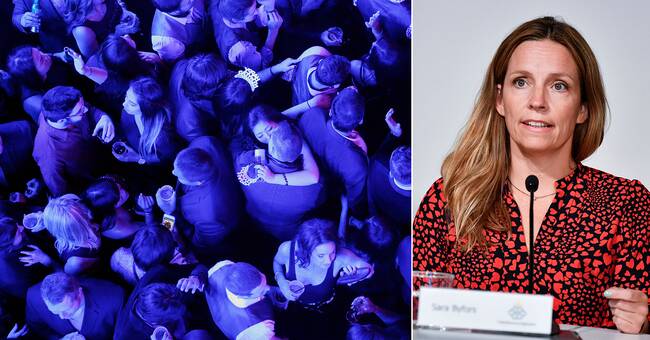At the beginning of the week, the city of Stockholm issued a ban on two clubs in Stockholm.
Since the restrictions were eased this summer, it has not been easy to decide what applies.
After an inspection on 3 August, one of the clubs was told that it must be "ensured that dancing guests within a party must be able to keep a distance to other parties on the dance floor of at least one meter".
After the next inspection in mid-August, it says instead that dancing must not occur at all.
Must sit
Monika Gerdhem, head of department at the environmental administration, says that it has previously been difficult to interpret the Swedish Public Health Agency's regulations.
There stands:
"When concerts, sporting events and similar activities are arranged at or next to a restaurant, the person who runs the restaurant must organize the business so that visitors sit down."
- The ambiguity has been whether the provision covers dance or not, she says.
Since then, the Swedish Public Health Agency has chosen to clarify what applies.
On the website that "it is not allowed to arrange dancing at restaurants" and that the rules that visitors must sit down still apply.
- If you have a restaurant, as it often is when you have a nightclub, then you should sit down.
Then it's hard to dance.
The problem is not if someone swings in time to the music, but that it has become crowded, says Sara Byfors unit manager at the Public Health Agency.
"Clearly"
In Gothenburg and Malmö, however, no problems have been experienced with the directives and no restaurants have had to close during the summer.
- When it comes to restaurants, we think the guidance is clear.
It is not allowed to stand and drink, it is also clearly described in the guide on this with distance from congestion and the risk of congestion, says Angelica Winter, head of the environmental administration in Gothenburg.
In Malmö, they have not experienced any ambiguities, nor have they encountered any dancing during the summer evenings and nights.
- We have been on inspections at night and not encountered it during our inspections, says Simon Alskans, acting unit manager, environment and health protection in Malmö.

